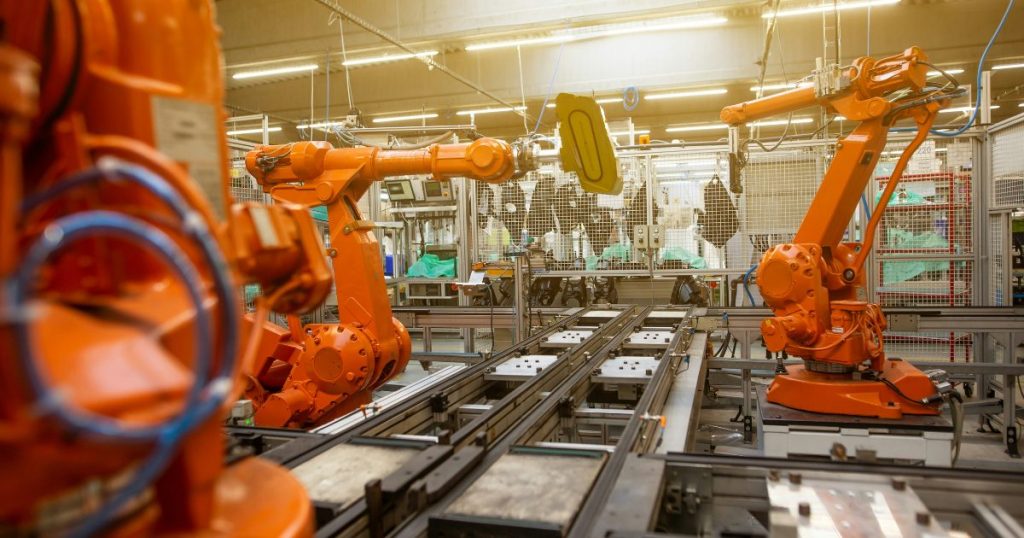Nearly ubiquitous in every day business conversation, artificial intelligence (AI) now touches virtually every market sector. However, its impact on supply chain management has been particularly interesting to watch.
AI isn’t just changing supply chain management; it’s revolutionizing it. Nearly three-quarters of supply chain companies reported using AI in some form in a 2024 McKinsey survey. From improved forecasting and optimization to enhanced risk management and sustainability, AI is helping businesses create more efficient, resilient, and responsive supply chains.
The AI Revolution in Supply Chain Management
Artificial intelligence isn’t just a buzzword in supply chain management; it’s a game-changer. It’s reshaping how businesses manage their supply chains. What is AI doing to transform supply chain management?
1. Unparalleled Demand Forecasting
One of the most significant advantages AI brings to supply chain management is its ability to predict demand with unprecedented accuracy. By analyzing vast amounts of historical data, market trends, and external factors, AI algorithms can forecast demand patterns more precisely than ever before. This enhanced forecasting ability helps companies:
- Optimize inventory levels
- Reduce waste
- Improve customer satisfaction by ensuring product availability
2. Intelligent Inventory Management
AI doesn’t stop at predicting demand; it also revolutionizes inventory management. Machine learning algorithms can:
- Continuously adjust inventory levels based on real-time data
- Optimize stock levels across multiple locations
- Reduce carrying costs while minimizing stockouts
This level of intelligent inventory management leads to significant cost savings and improved efficiency.
3. Predictive Maintenance: Reducing Downtime
In supply chain operations, equipment downtime can be costly. AI-powered predictive maintenance is changing this landscape by:
- Analyzing sensor data to predict when equipment is likely to fail
- Scheduling maintenance before breakdowns occur
- Extending asset lifespans through timely interventions
The result? Reduced downtime, lower maintenance costs, and improved operational reliability.
4. Route Optimization: Enhancing Logistics Efficiency
For businesses involved in transportation and logistics, AI offers powerful route optimization capabilities. AI algorithms can:
- Calculate the most efficient routes in real-time
- Factor in variables like traffic, weather, and fuel costs
- Reduce transportation costs and improve delivery times
This not only saves money but also enhances customer satisfaction through faster and more reliable deliveries.
5. Automated Warehousing: The Future of Fulfillment
AI is transforming warehouse operations through automation. AI-powered robots and systems can:
- Streamline picking and packing processes
- Improve order fulfillment speed and accuracy
- Reduce labor costs and human error
These advancements are particularly crucial in the era of e-commerce and same-day delivery expectations.
6. Proactive Risk Management
Supply chain disruptions can have severe consequences. AI helps businesses stay ahead of potential issues by:
- Analyzing various data sources to identify potential risks
- Providing early warnings about supplier issues, geopolitical events, or natural disasters
- Enabling proactive risk mitigation strategies
This proactive approach enhances supply chain resilience and business continuity.
7. Dynamic Pricing Strategies
AI algorithms can adjust pricing in real-time based on various factors, including:
- Current demand and supply levels
- Competitor pricing
- Market conditions
This dynamic pricing capability helps businesses maximize revenue and maintain competitiveness in volatile markets.
8. Enhanced Quality Control
Quality issues can be costly and damaging to a brand’s reputation. AI, particularly computer vision and machine learning, can:
- Detect product defects more quickly and accurately than human inspectors
- Identify patterns that may lead to quality issues
- Improve overall product quality and reduce recalls
9. End-to-End Supply Chain Visibility
One of the most valuable contributions of AI to supply chain management is its ability to provide comprehensive visibility. AI can:
- Integrate data from various sources across the supply chain
- Provide real-time insights into every aspect of operations
- Enable better-informed decision-making at all levels
This end-to-end visibility is crucial for identifying inefficiencies and optimizing the entire supply chain.
10. Driving Sustainability in Supply Chains
As businesses focus more on sustainability, AI is playing a crucial role. It can:
- Optimize operations to reduce waste and energy consumption
- Identify opportunities for more sustainable practices
- Help businesses meet their environmental goals while maintaining efficiency
The Future of AI in Supply Chain Management
The potential of AI in supply chain management is vast and still largely untapped. As AI technologies continue to evolve, we can expect even more innovative applications that will further transform the industry. The COVID-19 pandemic highlighted the need for more agile and robust supply chains, accelerating interest in AI solutions. Businesses that embrace AI in their supply chain operations are likely to gain a significant competitive advantage in the years to come.
In fact, as we move forward, the integration of AI in supply chain management will likely become not just an advantage, but a necessity for businesses looking to thrive in an increasingly complex and competitive global marketplace.
